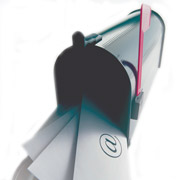 |
 |
 |
|
READERS' FEEDBACK Advisen a tool for agencies of all sizes In the April 2007 issue of Rough Notes I read with interest the article about Advisen (“An Online Research Department,” page 30.) In my insurance career I have been an agent, an underwriter, a risk manager, and a consultant. Information and knowledge have always been an important factor in doing the best job possible. I have become very familiar with Advisen over the last couple of years and the plethora of information they have put together. It has also become apparent how much better I would have been (in my past life) with this valuable resource. Of disappointment to me is that the interviews in the article were with larger national and regional insurance agents and brokers, leading one to believe that maybe this is Advisen’s target market. It is definitely not. In today’s world of changing insurance needs and requirements, agents and brokers must become much better at managing information and data. After conducting many E&O audits, I have learned that there is still a long way to go. As a certified auditor for the Westport E&O program, I have encountered many agencies that truly believe that they are doing a great job of disseminating information and data for their clients. Some certainly are doing it better than others, but there is definitely room for improvement. With this in mind, I would like to point out the following: • Professional knowledge and its application to the client’s insurance needs can be what separates the winning agent or broker regardless of size. • It is important to remember that E&O claims start with the sale. So, it really boils down to how well information is used by the agent during the sales process and in the service of an account. • Information and knowledge sharing is critical to the success of any agency and should not be limited to larger firms. • Small to mid-sized agencies have limited resources to dedicate to efficiently delivering quality presentations. If the resources are available, and as part of the community, they will usually have the advantage, not an outsider. • Agencies that want to grow effectively and profitably need to be at the top of their game. As was stated in the article, information is available on just about every topic one can think of, thanks to the Internet. However, following the Google highway can sometimes take hours if not days, weeks, or months. This can be a time-consuming and costly process particularly for small to mid-sized agencies. Advisen has changed that by bringing all of the information and data together in one place. I encourage any agent or agency—regardless of size—looking to protect or gain a reputation as a knowledgeable and trustworthy professional advisor to explore Advisen. To those agents and brokers who strive to be leaders, take a look at this integrated analytical information platform called Advisen. —Judi Newman Playing it safe when clients divorce In your March 2007 issue of Rough Notes there was an article titled “Divorce and Property Insurance” (“Coverage Concerns,” page 12). A couple of paragraphs were dedicated to personal auto coverage, and the article stated that it is customary to name either the husband or the wife in an auto policy even though the other may hold title to the one of the cars. The reason cited is one of convenience that prevents various legal and technical complications. Our policies state that “You and your means the named covered person on the Declarations Page, and the spouse if a resident of the same household.” I think it would be more prudent to always name both spouses on the policy. You may leave yourself open to an E&O claim if the couple divorces or separates, the non-named spouse leaves the residence, the non-named spouse is named on the title of the vehicle that is left with the spouse who remains, and there is an accident with that vehicle; or the non-named spouse leaves the residence with a vehicle and has an accident and the other spouse declares they didn’t give permission; or the non-named spouse leaves with a vehicle and lends it to someone who has an accident and the other spouse says they wouldn’t have given permission. Our practice is to name both spouses on our personal auto policies and get signatures on changes deleting coverage for the other spouse. It may not be convenient, but it might be less costly to the agent in the long run. —Lori Anderson, Agent Author’s response: Your practice of naming both wife and husband as named insureds in automobile policies is certainly a positive step to assure coverage of exposures that might develop in the future. Nobody enters marriage with consideration of potential divorce, but you can set up the policy declarations language without discussion of the possibility. What counts is ongoing attention to the account and changes in driving exposures and premiums that might be warranted. Unfortunately, many insurance buyers do not have or seek periodic review and discussion of their coverage. At least, prior to renewal it is reasonable to check exposure changes for underwriting considerations and possible rating adjustments. Changes such as these might have occurred: A named insured is furnished a company owned and insured car and will no longer use his own in his work; a child has been licensed and is now an occasional driver of covered family cars; a covered child has married and now has another residence and his or her own car; one of the covered family cars has been replaced by a new model, which will warrant collision and comprehensive coverages. —Roy C. McCormick |
|
|||||||||||||
| ||||||||||||||
